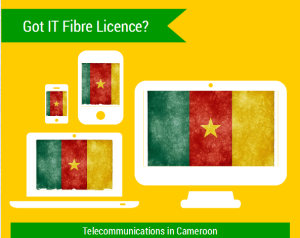8 Startup Profiles from Cameroon’s Leading to this city.
By Dzekashu MacViban
Source: IDG Connect

An IT revolution is going on in Buea, a university town in the South West Region of Cameroon. In fact, despite being smaller than centers at Douala and Yaoundé, Buea is already inundated with IT startups all looking to solve real life problems. These tackle a range of issues such as local bus problems, the poverty cycle trapping farmers… along with the great swathe of foreign workers who would like to work in Africa.
The young entrepreneurs behind these ventures are very conscious of the amount of hard work required to create startups that can compete at an international level. Now some of them, in an attempt to debunk any theories that their platforms are the product of luck, have worked even harder and have already reached the status of ‘two-hit wonders’.
This short profile provides an overview of eight of the more interesting startups in Buea at the moment. Some are highly successful, some are not yet off the ground; all are based on my own experiences living in Cameroon and interviewing local individuals on the ground. The companies mentioned are listed in alphabetical order.

Agro-Hub
Agro-Hub strives to break the cycle of poverty entrapping more than 70% of farmers living in the rural agricultural communities of Cameroon. The startup works to provide these farmers with a much needed community, along with markets to sell their products through an innovative use of the web and mobile technology. This complements the work of the Cameroonian government and the African Development Bank.
Agro-Hub creates an inventory of agricultural products (such as maize, potatoes, garlic, okra, egusi, yam, tomato and cassava among others) from farmers and sells them directly to the general public through AGRO-MART or « farmers’ supermarket ». This supplies hotels, restaurants, boarding schools, other retailers and exporters.
Bisou
Bisou is an experimental illumination and sound device which provides an innovative approach to street safety. A Bisou unit consists of a security lamp (with motion sensors) attached to speakers. This is connected to an electricity pole or another supportive structure which can then plug into the electricity grid. The lights only come on when motion is detected and audio or media, such as a short piece of music, news, a public announcement, or an advertisement accompanies it. This project was developed due to a considerable amount of crime occurring in areas that were poorly lit.
Bisou is effective, cost efficient and an easy hardware hack. After dozens of meetings, presentations, field studies and technical assessments, AES-SONEL finally validated the street lighting project for Buea, but negotiations for full rollout are still in the pipeline.
Fee Perfect
Fee Perfect is the brainchild of Fritz Ekwoge who has a number of seminal projects behind him. A Polytechnique grad student of ’07, Ekwoge started working for PricewaterhouseCoopers (PWC) and while there, he launched Kerawa.com, an online classified ads platform. According to Alexa.com, for some time in 2007, Kerawa.com was the most visited site by local Cameroonian firms. The success of this startup gave Ekwoge confidence and with an investment from Limbe Labs he quit his job at PWC and started a company called Fee Perfect, which he describes as “an African tech company run right”.
In 2010, SeedCamp selected Fee Perfect as one of the top ten African startups. However, all of his previous ventures haven’t gone so smoothly. Before Kerawa.com, there was Akoko.com, which he started while he was in Polytechnique, but this wasn’t successful.
Ekwoge then developed an app called Find Me, in 2011, which is a smart mobile phone book that finds companies, places and individuals, when one types, for example, ‘Find X’, and sends an SMS. The answer is received within a millisecond. It also includes an algorithm which automatically corrects names during a search. The app has been tested with phone companies in Cameroon and negotiations are in the pipeline.
The realization that Find Me might take a while to be integrated into society led Ekwoge to create Iyam.mobi, which is a cheap bulk SMS platform that targets Africa. Iyam.mobi’s website now includes a classified ads section, which wasn’t originally present. Iyam.mobi has more users in Nigeria than in Cameroon, and Ghana is the third African country with highest users. Recently, Congo Brazzaville and Chad joined the list of those using Iyam.mobi.
Feem is Fee Perfect’s first global product, and it is mostly used in USA, India, France, UK, Canada, Switzerland and Germany. Feem offers painless local sharing to the world using Wi-Fi, and it is adapted for Windows, Mac, Linux, Android and iOS. Feem doesn’t have a precise launch date, given that it was launched on different dates on the various platforms under Fee Perfect, but it has been operational for almost a year.
King Maker
After winning the runner-up prize at the CSC2012 Award (Cameroon Startup Challenge) in Douala, King Maker, an innovative cyber cafe ad platform which generates pop-up ads for Cameroonian companies, was ready for the world. This is the brainchild of Mohamed Felata, an IT coder who’s been experimenting with online advertising models since his first web application, KmerBlagues, This startup works with cyber cafés to bring relevant local advertising to their clients.
Njorku
Churchill Nanje Mambe has been writing code since 2004, but it wasn’t until he built Njorku.com in 2011 that he became well known in Africa and the rest of the world. This included a profile on Forbes.
Njorku is a fast-growing career and recruitment platform for Africans, which retrieves pages and job advertisements. This provides a simple interface for job seekers to search through and filter jobs. “I never saw this coming,” he tells me, because today, Njorku receives CVs from people who live in the Philippines, Bangladesh, China, Mexico, Pakistan, Hungary and many other countries, and all these people want to work in Africa. Currently, Njorku serves seven African countries (Cameroon, Nigeria, Kenya, Ghana, Uganda, South Africa and Egypt).
Pursar.com
As a contender to alleviate the challenges and shortcomings of moving money around physically, Pursar.com is a digital wallet which enables the average Cameroonian without a credit card or PayPal account to engage in financial transactions online. It is built on open technology and allows money transfers, buying and selling, and facilitates getting paid for services online. The main raison d’être behind Pursar.com, says Otto B Isong, the co-founder, is to eliminate the problems associated with carrying money, such as theft. Before Pursar.com, Otto had founded TopUpDesk, a remote airtime refill for people without credit cards, and in January 2013, TopUpDesk was integrated with Makonjoh.com, a local e-commerce website.
Quick Ticket
Recently, an Indiegogo campaign was launched to fund Quick Ticket, a web-based platform through which commuters would have a real time connection with travel companies. This would allow users to make reservations from anywhere online and receive SMS notifications.
This platform, if successfully funded, will enable people to check bus schedules, reserve or purchase tickets, preview each bus plan, choose favorable seats, monitor the status of buses they book and check for parcel delivery, all online. The software was conceived by Acha Nelson, a 4th year Biomedical Sciences student and Absalom Shu, a software developer with a B.Sc in Math and Computer Science, who’d previously worked with Wasamundi. If this project is successfully launched, travelling by bus in Cameroon will never be the same again.
Wasamundi
The challenge of finding particular places easily has always preoccupied coders, and alleviating this quagmire has been central to Wasamundi.com. Founded by Qiuncy Kwende and Nara Laurence, Wasamundi connects people to information they care about, including local businesses and places in their community. It is a platform which assists people (especially students) find the accommodation of their choice via the web (Wasahostel.com) and SMS search.
WasaHOSTEL (wasamundi.com/hostels or wasahostel.com) is a platform which helps university students find housing via a website and by SMS across the country. For example if a student is looking for a room which costs 250,000 francs (518 USD), they can use a mobile phone to text “Search 250,000” to 8047 (For MTN and Orange Cameroon Networks). The algorithm then selects hostels based on several unique variables like: how close is this hostel to the university? Is there a vacant room in this hostel? Is there a vacant room for the price which the student has searched?
Wasamundi allows businesses to be rated by customers and also has an SMS platform (wasamundi.com/texto or wasatexto.com) which allows users to send single and bulk SMS worldwide for 10 francs (0.02 USD). Its services cover the North, South West, Littoral and Centre regions of Cameroon, and Alexa.com ranks Wasamundi as the 121st most visited site in Cameroon. On top of all this, Wasamundi delivered the first URL shortener in Cameroon.
A number of factors can account for this technology transformation at Buea, the most prominent being that this is a University town, with a good climate, a lot of risk bearers and plenty of hopeful entrepreneurs. Its proximity to other cities like Douala and Limbe makes it possible for commuters to work there without actually living there, thus making Buea a good town for business.
The economic implications of these startups are multifarious, ranging from self-employment to a robust financial system as well as a noticeable improvement in standards of living. Who knows what the future will hold for a small place like Buea, thanks to tech.










